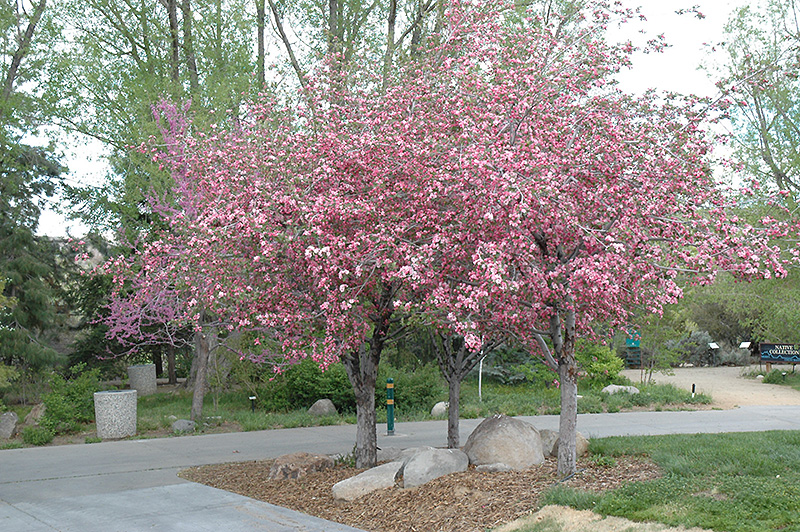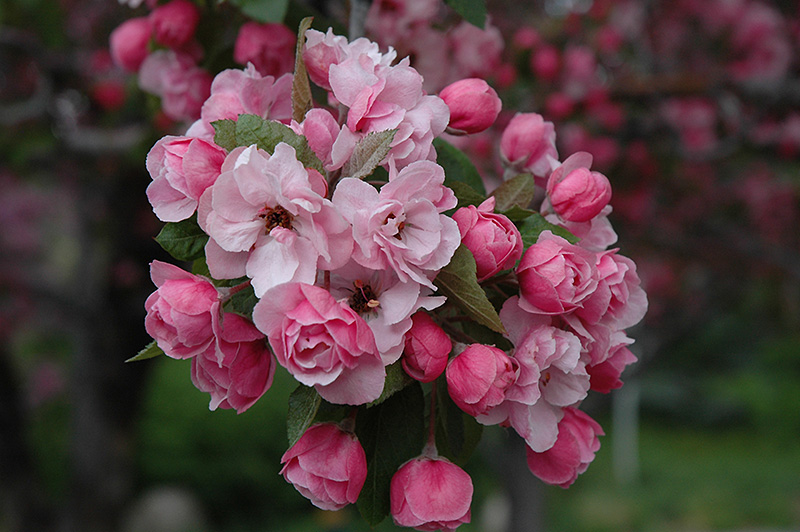>> Home
Brandywine Flowering Crab
Malus 'Brandywine'
Height: 20 feet
Spread: 15 feet
Sunlight:
![]()
Hardiness Zone: 4
Other Names: Roseybloom, Crabapple
Description:
A truly breathtaking small ornamental tree with double pink flowers in spring, yellow fruit in fall and dark foliage, upright habit of growth; an exceptional specimen tree for the smaller home landscape, needs well-drained soil and full sun
Ornamental Features
Brandywine Flowering Crab is draped in stunning clusters of fragrant double rose flowers along the branches in mid spring before the leaves. The fruits are showy yellow pomes carried in abundance in early fall. The fruit can be messy if allowed to drop on the lawn or walkways, and may require occasional clean-up. It has brick red-tipped dark green foliage. The pointy leaves turn yellow in fall.
Landscape Attributes
Brandywine Flowering Crab is a deciduous tree with an upright spreading habit of growth. Its average texture blends into the landscape, but can be balanced by one or two finer or coarser trees or shrubs for an effective composition.
This is a high maintenance tree that will require regular care and upkeep, and is best pruned in late winter once the threat of extreme cold has passed. Gardeners should be aware of the following characteristic(s) that may warrant special consideration;
- Messy
- Disease
Brandywine Flowering Crab is recommended for the following landscape applications;
- Accent
- Shade
Planting & Growing
Brandywine Flowering Crab will grow to be about 20 feet tall at maturity, with a spread of 15 feet. It has a low canopy with a typical clearance of 4 feet from the ground, and is suitable for planting under power lines. It grows at a medium rate, and under ideal conditions can be expected to live for 50 years or more.
This tree should only be grown in full sunlight. It prefers to grow in average to moist conditions, and shouldn't be allowed to dry out. It may require supplemental watering during periods of drought or extended heat. It is not particular as to soil type or pH. It is highly tolerant of urban pollution and will even thrive in inner city environments. This particular variety is an interspecific hybrid.

